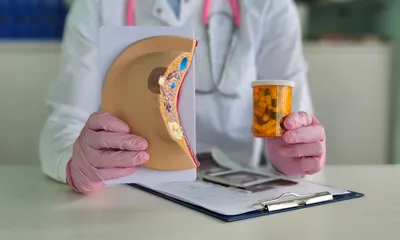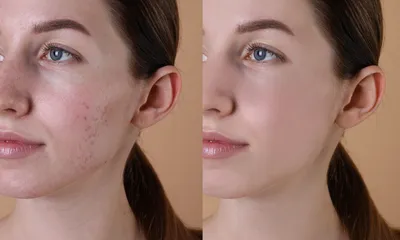Depression
-
Description
-
Signs & Symptoms
-
Anatomy
-
Cause
-
Diagnosis
What is Depression?
Depression is a mental health disorder that involves the person feeling constantly down, sad, unmotivated, lethargic, and having a negative outlook on life. People will experience depression differently, and it may interfere with relationships, work, studies, and responsibilities as well as making the person more susceptible to chronic health conditions.
Depression is one of the most common mental health disorders, although most people who do develop it will have mild depression and not major depression. Mild depression is more treatable and will usually not be the same impediment to living a normal life that major depression can be. Major depression is twice as high for females as it is for males.
What Causes Depression?
Depression is caused by neurotransmitters in the brain, and most specifically when there is a lack of serotonin. It is the neurotransmitter that works to effectively regulate mood when it is present in the right quantities, but if there is an insufficient amount of it in the brain there can be impaired chemical messaging that causes the person to have the feelings and negative mental outlook that come with depression.
Changes in hormone levels can also factor into depression, and this is especially true for women based on fluctuations with their estrogen and progesterone levels. It is not uncommon for a woman with mild depression to have it become major depression while she goes through her monthly menstrual period.
Some people are more likely to have depression because of the structure of their brain, and that leads to looking at people having a genetic predisposition for having depression. It is known to be a mental health disorder that does run in families, and you will have a greater chance of having depression if one of your parents or grandparents had it.
Depression can also have triggers, including:
- Early childhood trauma
- Medical conditions like chronic illness, insomnia, cancer, Parkinson’s disease
- Chronic pain
- Substance abuse
- Long-term vitamin D deficiency
- Gender identity struggles
Depression Symptoms
People with depression may have different indicators that they are depressed, but the standard depression symptoms are feelings of sadness or anxiety, being hopeless about future prospects, being overly pessimistic, crying, loss of interest in activities or hobbies that were enjoyed previously, inability to focus or concentrate, sleeping difficulties, irritability, and constant feelings of being bothered, annoyed, or angry.
Individuals with major depression may have thoughts of self-harm, and there are also symptoms that are unique to depression in children. These include unexplained cognitive decline, feelings of incompetence, digestive problems, and weight gain.
Depression Treatment
The most conventional approach to depression treatment is to have the person start on SSRi (selective serotonin-reuptake inhibitor) medications like Zoloft or Prozac. Psychotherapy is almost always recommended as part of depression treatment, and people with severe depression will be encouraged to work with a mental health professional along with taking medication to address chemical imbalances in their brain. Increased support and encouragement from family and friends is also very helpful for helping a person overcome depression.
Signs & Symptoms
- Persistent sadness
- Loss of interest in activities
- Changes in appetite or weight
- Sleep disturbances
- Fatigue or loss of energy
- Feelings of worthlessness or guilt
- Difficulty concentrating
- Thoughts of death or suicide
- Irritability
- Aches and pains
Anatomy
- Brain
- Neurotransmitters
- Hippocampus
- Prefrontal cortex
- Amygdala
- Nervous system
Cause
- Genetic factors
- Brain chemistry imbalances
- Hormonal changes
- Trauma or stress
- Chronic medical conditions
- Substance abuse
- Medications
- Loss of a loved one
- Lack of social support
Diagnosis
- Psychiatric evaluation
- DSM-5 criteria
- Medical history review
- Physical examination
- Blood tests
- Thyroid function tests
- Questionnaires or surveys
- Neuroimaging (MRI, CT scan)



